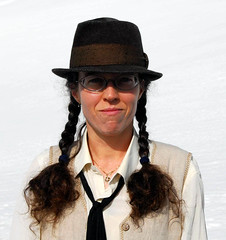Aleppo, Syria
Dominated by an impassable citadel high above the city dating from the 12th century, the modern city of Aleppo still manages to stick to some of its traditions. Trade and soap manufacturing are the ones that come to mind. The Aleppian soap made from laurel oil is supposed to be one of the highest quality soaps. The buzzing area around the old souq is clear evidence for the trading skills of the Aleppians.
Even though the glorious times of this almost 4 millenia old city is a thing of the past the souq area dealing with fabrics of all kind and everything related to those -from yarn to wool to rope and buttons - is more than impressive. And then there are the spices and the silver and gold jewelry and soap and carpets and many more. Unlike the souq in Damascus which may remind you in certain areas of a Parisian gallery, the Aleppo souq takes you back in time. It is a labyrinth of narrow lanes and passages that can easily drive you claustrophobic. Old historical buildings like khans and madrassas as well as mosques are simply embedded in this maze and often in a poorly preserved state.
The old city boasts with old mosques and khans with centuries of history behind and lovely architectural details to admire. The preserved city gates in the city walls are extremely impressive and a walk following the narrow lanes leading to the souq is sure to take you back in time. There are small workshops along, tiny bakeries and all so often "traffic" jams. It's sufficient for one of the small delivery cars to stop and you can't even squeeze by.
The Christian-Armenian quarter outside of the old walled city is also very charming with its distinct Ottoman architecture. Along the narrow cobble-stoned streets you find pretty boutiques and souvenir shops as well as some exquisite hotels and restaurants housed in lovely and wonderfully restored old mansions. You need to explore and discover as, true to the culture, the beauties and treasures are seldom open on display, but rather protected by a neutral or bland facade. Privacy is very much valued in the Islamic world: just as the black hijab protects the woman, the lovely courtyards with their relaxing fountains, with the fragrance of jasmine filling the air and often with beautifully painted wooden ceilings and inlaid stonework are hidden behind walls and invisible to the stranger passing by.
As fascinating as the Old City is around the Great Mosque I simply couldn't enjoy it at its best mainly because I let my frustration take over. There were far too many touts around and I loathed being approached every single time I stopped. But it would be totally unfair to say I didn't enjoy Aleppo as I had a great time wandering through the old city away from the main attractions and I had wonderful encounters here, too.
A young boy, Areef, sat next to me in the square in front of the citadel - where I had watched the fortress walls glow at sunset - and browsed through my Lonely Planet guidebook looking at the pictures in awe. He was turning the pages and holding the book with a reverence and respect you hardly ever see nowadays.
Several times young women stopped and asked me about my name and country and whether I enjoyed Syria.
A young woman studying in University who spoke some broken English came to me in the mosque courtyard and we chatted for a while. "I love you" she said to me as she kind of followed me around and I felt embarrassed. I knew what she meant, I had experienced it before. But how to explain to people so distant culturally that not necessarily everything they see or admire about Westerners is worth their admiration and appreciation. She liked my blue eyes and she liked my independence and my being able to travel around and see places. Yes, I could understand that, as well as the limitation in vocabulary hindering these people to explain themselves. Hence their impression and admiration always expressed in the form of something like "I love you".
I thought later about it and realized that this kind of encounters not many travellers really have. A girl or young woman like her would never approach a male independent traveller or a group, even if the group consisted of women only. And so I enjoyed the best of the gender "worlds" having both men and women approaching me throughout the Middle East. I felt happy and grateful every single time.
Saturday, November 15, 2008
Subscribe to:
Post Comments (Atom)

No comments:
Post a Comment